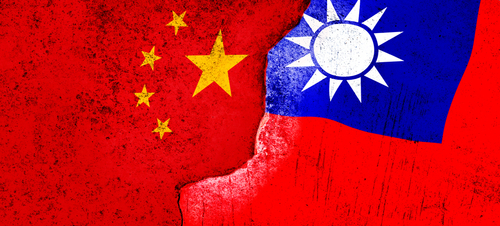
Biden Administration Says ‘No’ To Taiwan Independence
On Thursday, White House National Security Communications Advisor John Kirby unequivocally stated that the Biden administration does not endorse Taiwan’s independence. The announcement followed a phone call between Joe Biden and Chinese President and general secretary of the Chinese Communist Party (CCP) Xi Jinping.
Kirby emphasized, “Certainly, Taiwan came up in the context of the call, of course, it came up.” He further elaborated that Biden was “very, very clear that nothing has changed about our One China Policy. We don’t support independence for Taiwan, but we also don’t want to see the status quo changed in a unilateral way, and certainly not by force.”
Thursday’s press conference occurred as the Biden administration also announced definitively that “Ukraine will join NATO. The double standard in a confused foreign policy only increased concerns about American appeasement of the CCP. The brutal Beijing regime is well known for its expansionist policies and aggressive posturing toward Taiwan, a democratic and self-governing island.
🚨 John Kirby today: “We don't support independence for Taiwan.”
The Biden administration is pro-Communist China. pic.twitter.com/cONqzfrGrR
— Sen. Marsha Blackburn (@MarshaBlackburn) April 4, 2024
Although the U.S. has not previously officially recognized Taiwan as an independent nation, it has maintained a “robust unofficial relationship” with its government. The relationship has been based on shared democratic values and vital economic relationships. It is anchored in a commitment to peace and stability across the strategically and commercially crucial Taiwan Strait. America has provided significant amounts of defense materials and services to support Taiwan’s self-defense capabilities.
While Kirby attempted on Thursday to pledge support for democratic values and self-determination his statement of Biden’s policy will only capitulate to the CCP’s demands, compromising Taiwan’s security and autonomy.
Republicans accuse Biden of being overly conciliatory toward China. President Donald Trump and House Speaker Mike Johnson (R-LA) have openly criticized Biden’s China policy, pointing out that personal and familial business dealings could easily influence his administration’s foreign policy decisions.
A firmer stance on Taiwan would affirm the United States’ dedication to democracy and self-determination and serve as a counterbalance to China’s aggressive regional ambitions. The current policy is a form of soft appeasement at best that compromises not only Taiwan’s security but also the United States’ strategic interests in the Indo-Pacific.
GymS
Obama and Schumer via komrade biden, are really pushing for WW III, and of course more payoffs for themselves.
DJT 2024
DJT Jr 2028